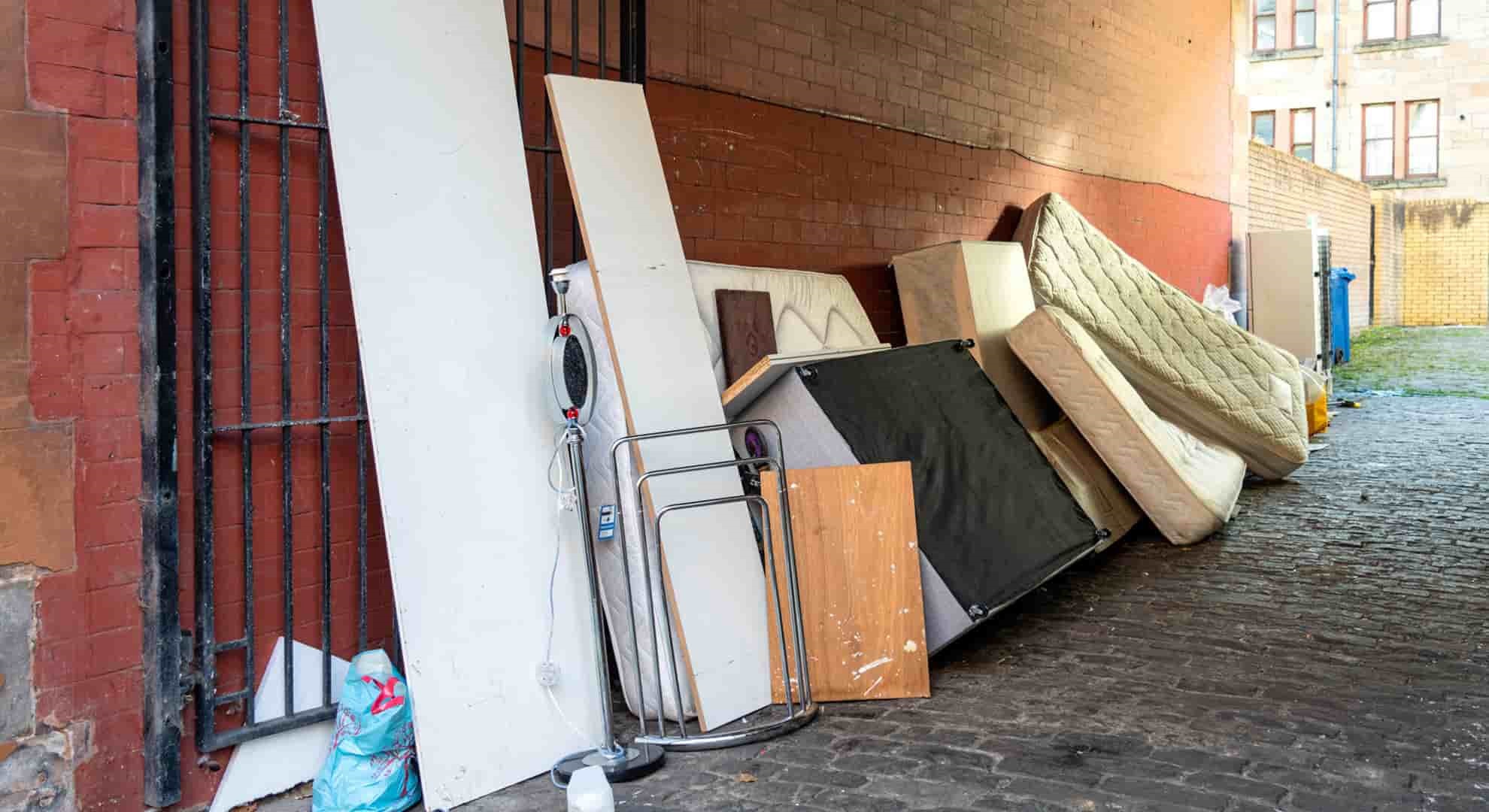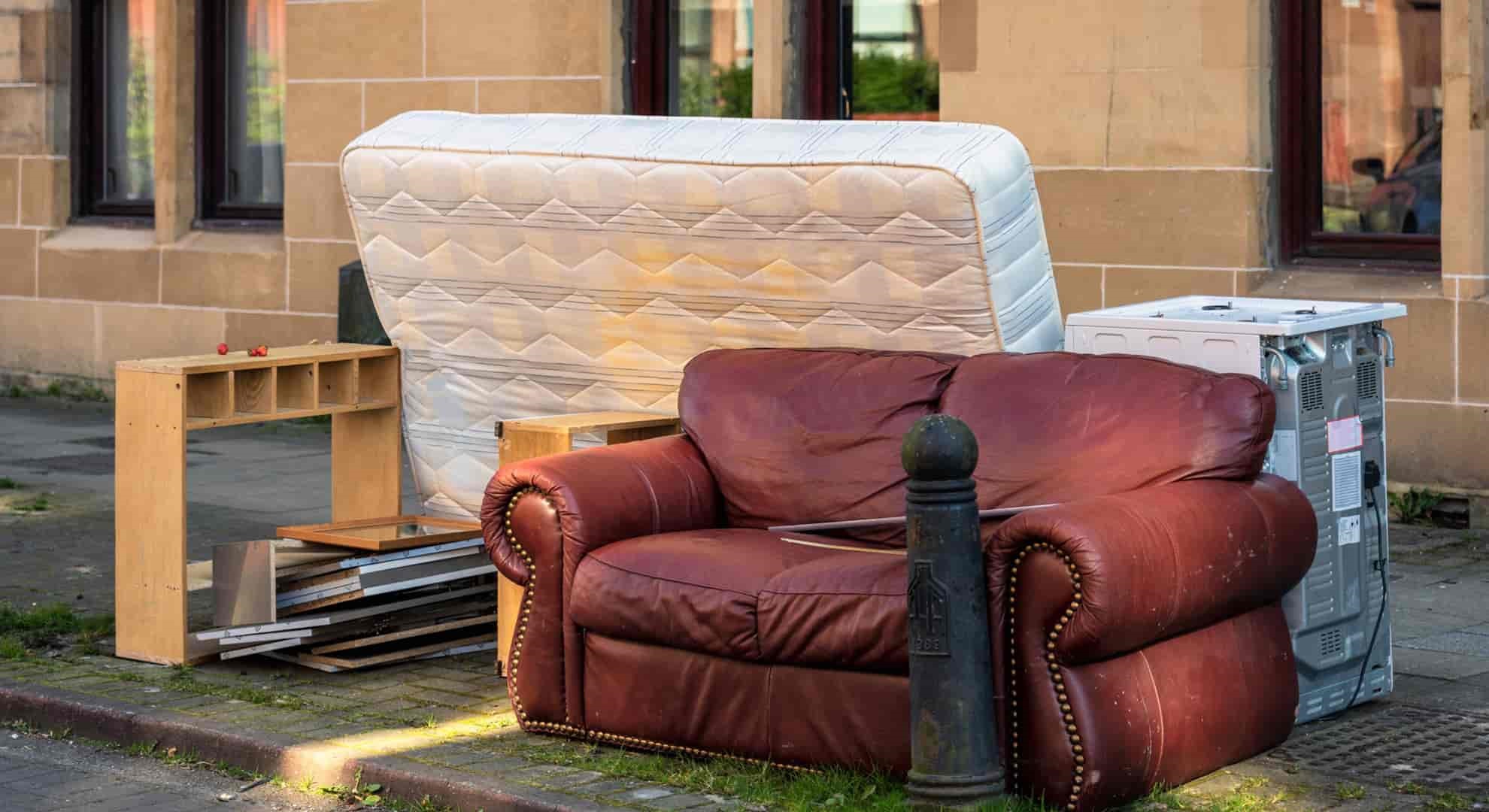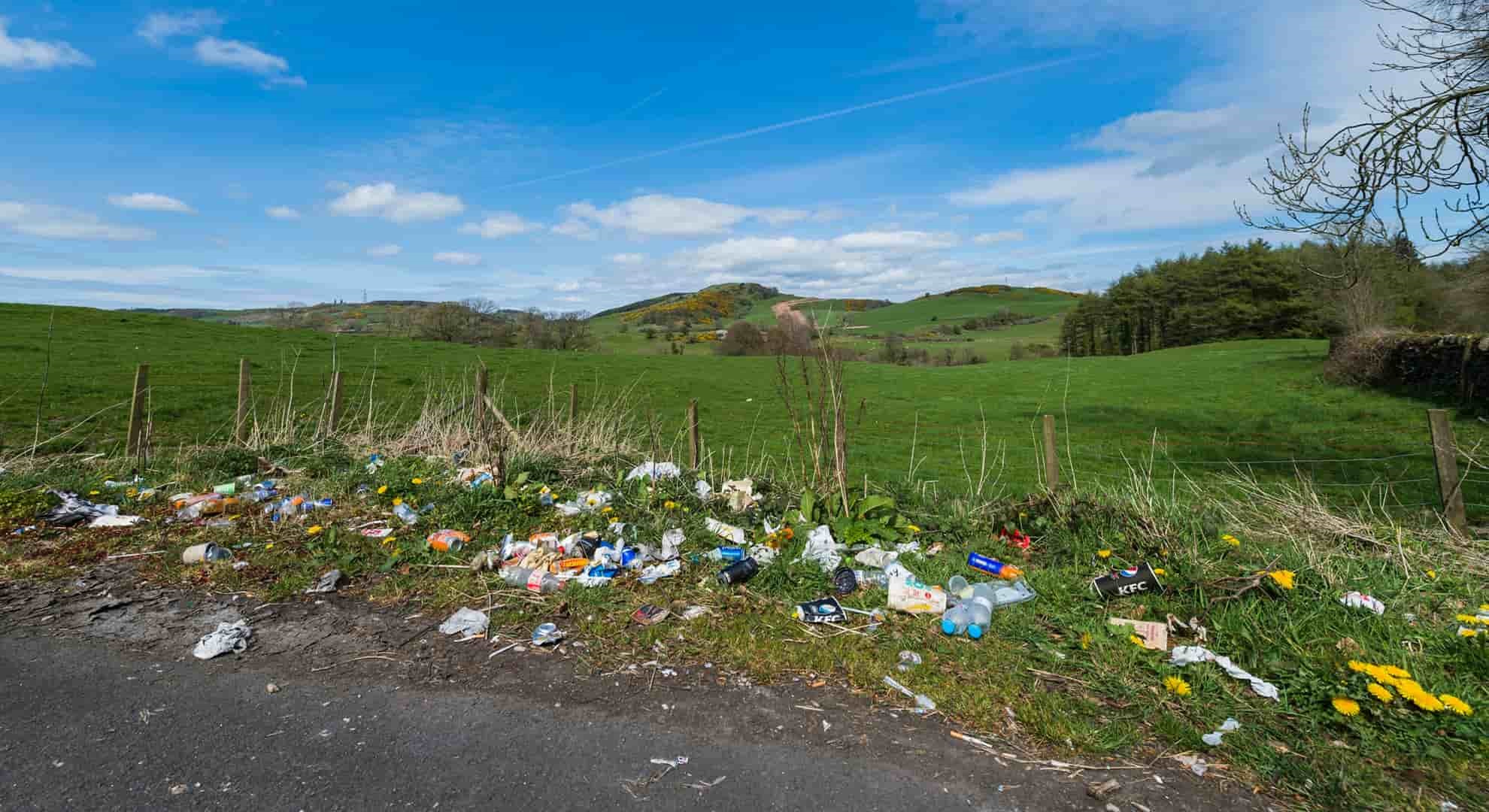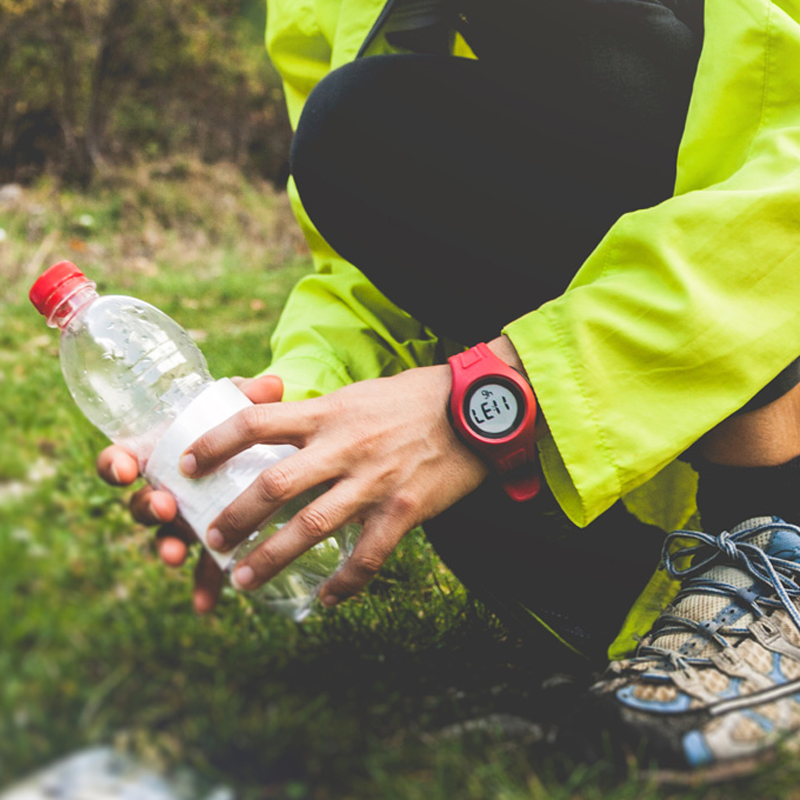
The fight against flytipping
Flytipping is a waste that is disposed of illegally and irresponsibly. It remains a huge problem in Scotland. Find out what people are currently doing to prevent flytipping and how you can join the fight.

The issue of flytipping
There are over 60,000 incidents of flytipping reported each year in Scotland, costing over £8.9 million of public money to clear up.
Flytipping is the action of disposing of waste illegally and irresponsibly and can include anything from a single black bag of household or garden waste to large volumes of tyres and construction materials.
To become a zero-waste society, we must realise the potential to reuse or recycle materials before they become waste.
How you can prevent flytipping
Land Managers
The Litter Monitoring System is the national reporting tool in Scotland; for private land managers and public bodies such as Local Authorities; to record and map flytipping in Scotland. This can help develop effective prevention and enforcement interventions at local and national levels.
With a strong evidence base, we will be able to develop solutions that positively influence the culture and behaviour of those engaged in flytipping.
Members of the public
The Dumb Dumpers flytipping reporting service has now closed. Public reporting of flytipping incidents should be made to the relevant local authorities, as agreed upon by consultation with enforcement bodies and the public.
Litter prevention spotlight
Organisations across Scotland are doing some fantastic work to prevent litter and tackle flytipping.
Fly-spotting in Leith
Flytipping was identified as a target for community action in the Edinburgh district of Leith after a survey revealed few Leithers knew they could book uplifts of furniture, or how easy it was to report flytipping.
Through Zero Waste Leith – a circular economy community initiative co-funded by the Scottish Government and the European Regional Development Fund and administered by Changeworks – a plan was put in place.
Changeworks chose the cult appeal of the movie Trainspotting to persuade people not to ditch furniture or put up with others turning their neighbourhood into a tip.
In a nod to the film, which is famously set in Leith, they urged people to choose something else: Flyspotting – a new word that encourages people to be on the lookout for flytippers and flytipping behaviour locally.
Messages were printed on distinctive orange and white posters echoing the film’s promotional materials, on fluorescent stickers on bins, and stencilled on pavements to catch the eye of passers-by.
Crucially, they included key information on what to do about flytipping, detailing the costs and contacts for arranging for bulky items to be picked up by the council or other organisations.
What were the results?
The campaign significantly reduced the number of goods dumped on the streets. Surveys six months on also showed that the behaviour change had lasted, with a 26% reduction in flytipping compared to the previous year. Following the campaign, 85% of locals surveyed said they felt confident that their community could now tackle flytipping.
Paperless ticketing at Historic Environment Scotland
Historic Environment Scotland (HES) has committed to reducing its carbon emissions to ‘Net Zero’ from their 2016-16 baseline level by March 2045. Waste and litter prevention is just one area where they are making a difference.
HES manages more than 350 historic sites nationwide, including Edinburgh’s iconic castle, which draws in more than two million people annually. If every visitor buys a single-use paper ticket, it generates a vast amount of waste which can all too easily become litter if those tickets are blown or thrown away.
To help reduce waste, HES successfully trialled paperless ticketing in 2017 for its 200,000 members. Under the new system, members can gain entry to its sites simply by showing their membership card, instead of having to have a paper ticket printed too.
What were the results?
In the two years after HES switched to paperless for its members, the organisation avoided roughly 280,000 tickets being printed at Edinburgh and Stirling castles. In addition, it negated the need to print around 320,000 receipts at its smaller sites where members can also present their card for scanning instead.
Keep Scotland Beautiful's Upstream Battle
Keep Scotland Beautiful tackles a wide range of environmental issues, from reducing the amount of litter on our streets to cutting the carbon emissions that threaten our planet.
The organisation found that 80% of marine litter originates on land and 35% of Scotland’s population lives in the Clyde Valley, so tackling the problem upstream and starting at the source inspired the launch of the award-winning campaign ‘Upstream Battle’.
The campaign draws attention to the journey of marine litter from source to sea, focusing on the iconic River Clyde and its 38 tributaries.
The campaign aims to bring the public, private and third sectors together with communities, schools and residents in a positive partnership and incorporates several of the interventions associated with Scotland’s National Litter Strategy; engaging with the schools of the Clyde Valley, raising awareness in communities, and gathering data on the scale of the problem.
What were the results?
As part of the campaign, Keep Scotland Beautiful supported 16 Community Anchor Groups to adopt a stretch of the Clyde to monitor and clean up. Volunteers were trained to carry out detailed surveys of stretches of the river. The Anchor Groups also took on a leadership role in their local communities, cascading messages through social media and engaging with local businesses and schools.
Keep Scotland Beautiful aims to continue to grow its litter database and use it to develop further targeted interventions locally and nationally.
Sunnyside Primary Schools #DrainCampaign
Sunnyside Primary School’s principal teacher, Lisa Perrie, worked closely with Zero Waste Scotland to develop the #LitterLiterate schools resource and has continued to provide valuable input into Zero Waste Scotland’s Litter Prevention Programme.
In 2018, pupils at Sunnyside Primary School in Glasgow made a discovery that shocked them, and they were inspired to make a difference.
Hunting for nurdles along Scotland’s scenic coast can feel a world away from inner city life in Glasgow’s east end. But after joining several beach clean-ups at the village of Arrochar on Loch Long, Sunnyside Primary School pupils and staff realised that they were far more connected than they thought. In fact, although the iconic shores of Loch Long were around 40 miles from their urban school in Glasgow, most of the marine litter wasn’t created by local people – it came from towns and cities.
With the help of the Ocean Defenders campaign group, Sunnyside Primary School launched their #DrainCampaign. The initiative served as a visual reminder for schools and businesses that litter dropped in urban playgrounds and streets can go down the drain into the ocean and wash up on a beach.
Pupils created a series of Scottish characters based on the sea creatures that marine litter can harm, with the characters appearing in Ocean Defenders workshops given at schools across Scotland as well as in other related campaigns. Sunnyside Primary School also took to social media to encourage others to join in a world beach clean-up, which saw dozens of businesses and schools get involved as part of World Oceans Day 2019.
What were the results?
More than two dozen primary and secondary schools got involved with the campaign, creating their own drawings and sharing their efforts on social media. Organisations including Scottish Water, Glasgow City Council, SEC, FIDRA, and the Marine Conservation Society also supported the campaign.
The campaign was acknowledged by the Scottish Government and pupils were invited to the Scottish Parliament in February 2019, where they were able to meet with politicians. The First Minister also visited Sunnyside to see the #DrainCampaign in action for World Oceans Day in June 2019.

National Litter Strategy
Scotland’s first National Litter Strategy ‘Towards a Litter Free Scotland: a Strategic Approach to Higher Quality Local Environments’ was published in 2014. This strategy promoted a new approach to litter, focusing on prevention instead of clean-up.
A strategy review was completed in November 2019 by The Scottish Government in partnership with Zero Waste Scotland and other key partners.
Since 2014, the landscape within which the Strategy operates has altered significantly. Scottish Government in partnership with Zero Waste Scotland and other key partners are developing a new National Litter and Flytipping Strategy which will allow a refreshed approach to these challenges.

Who is responsible for litter and flytipping?
We all have a responsibility to keep Scotland clear of litter and flytipping.
